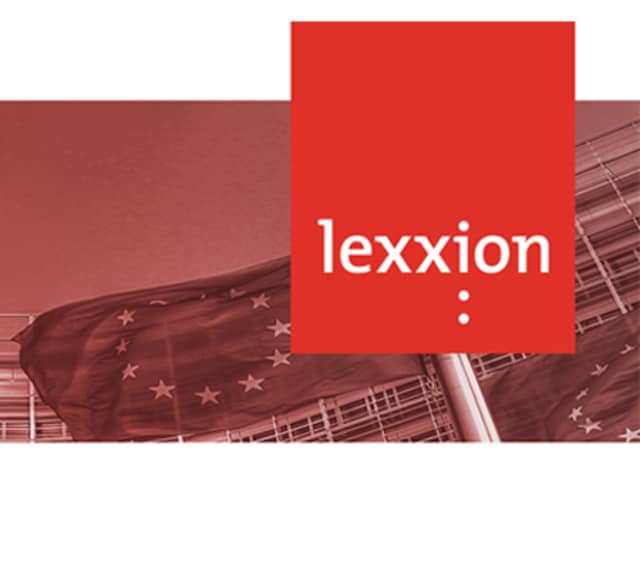A state guarantee is presumed to lower borrowing costs. However, any other benefits in relation to customers or suppliers have to be proven. Introduction On 26 May 2016, the General Court rendered its judgment in case T-479/11, France v Commission concerning the IFP.[1] France appealed against Commission decision 2012/26 which found that France granted aid to IFP. IFP iIFP s […]
State Aid Law
Blog
State Aid Uncovered Blog
In Lexxion’s State Aid Uncovered blog, Prof. Phedon Nicolaides publishes weekly critical analyses of recent State aid judgments and decisions. Each post presents the key points of a court judgment or EU Commission decision, places it in the context of similar case law or practice, assesses the underlying reasoning and highlights any inconsistencies or contradictions.
Guest contributions from other State aid experts will also be published on the blog at irregular intervals to complement the content of the blog posts.
13. June 2016 |
State Aid Uncovered
by Phedon Nicolaides
9. June 2016 |
Guest State Aid Blog
by Lexxion Publisher
What is State aid? Why do I need to be concerned about State aid? What is General Block Exemption Regulation (GBER) and how to use it? These and many more basic questions will be answered in our videos on YouTube. Make sure to visit us! With great pleasure we announce the beginning of a new era of e-learning about […]
7. June 2016 |
State Aid Uncovered
by Phedon Nicolaides
Aid measures that target persons with particular needs and who are not adequately provided by the market are not likely to be found to distort competition contrary to the common interest, even if there is some substitutability between the subsidised services and similar services provided by the market on commercial terms. Introduction In August 2011, the Commission received a […]
2. June 2016 |
Guest State Aid Blog
by Erika Ellyne
We are happy to welcome Erika Ellyne on the State Aid Blog today. She is a lawyer at Van Bael & Bellis law firm where she works on EU competition law matters. Previously she was a researcher at the VUB University and the LSTS research center, where she is still an affiliate. Today she gives her insights on the Frucona […]
1. June 2016 |
Guest State Aid Blog
by Lexxion Publisher
Find below the court’s diary for all State aid cases this month. Would you like to write a comment on one of them? Please don’t hesitate and get in touch with us ([email protected]), we are happy to publish your comment on the blog. Thursday 09/06/2016 Judgment in Case T-162/13 – Magic Mountain Kletterhallen and Others v Commission (General […]
31. May 2016 |
State Aid Uncovered
by Phedon Nicolaides
Arrangements established by law whereby undertakings are compensated for any extra payments they make to producers of green electricity are likely to bring those payments under the control of the state. Those payments will then be classified as state resources regardless of whether they are managed by private entities. Introduction On 10 May 2016, the General Court issued its […]
24. May 2016 |
State Aid Uncovered
by Phedon Nicolaides
State aid is an objective concept. When the Commission assesses a measure it has to examine its effects and cannot be bound by a decision of the Council. A beneficiary of State aid cannot entertain legitimate expectations simply because the Commission does not appear to object to the aid. Introduction On 22 April 2016, the General Court rendered its judgment […]
18. May 2016 |
State Aid Uncovered
by Phedon Nicolaides
A market economy operator undertakes activities whose incremental revenue exceeds their incremental costs. A market economy operator ignores costs which are unaffected by those activities. A service of general economic interest has special characteristics that set it apart from other services with positive impact on the economy. Having a positive impact is not enough. Part II: Public tasks and […]
10. May 2016 |
State Aid Uncovered
by Phedon Nicolaides
A market economy operator undertakes activities whose incremental revenue exceeds their incremental costs. A market economy operator ignores costs which are unaffected by those activities. A service of general economic interest has special characteristics that set it apart from other services with positive impact on the economy. Having a positive impact is not enough. Introduction National and regional authorities […]
3. May 2016 |
State Aid Uncovered
by Phedon Nicolaides
State guarantees can be used to support loans for working capital. The amount of State aid in guarantees can be calculated to remain below the de minimis threshold of EUR 200,000. Introduction With financial instruments being very much in vogue, there is much interest in the use of guarantees and loans as a means of granting State aid. Therefore, […]
12. May 2015 |
State Aid Uncovered
by Phedon Nicolaides
Where there is a constitutional division of tax competences, different authorities may tax similar activities at different rates. Introduction This article examines Commission decision SA.34469 on differential tax rates for online and land-based gambling in Spain.[1] In the Spanish political system, regions that have the status of Autonomous Communities have powers of taxation. The issue at hand was which authority […]
6. May 2015 |
State Aid Uncovered
by Phedon Nicolaides
In managing infrastructure, a public authority acts as a private operator when it seeks a reasonable return on its investment and also takes into account the alternative of not operating the infrastructure. The manager of an infrastructural project may charge different fees to different users to optimise usage and increase revenue. Introduction This article reviews Commission decision 2015/506 concerning […]
29. April 2015 |
State Aid Uncovered
by Phedon Nicolaides
State aid rules apply to measures which are either harmonised at EU level or are left to the discretion of Member States. The protection of public health is no sufficient reason for removing a public measure from the scope of Article 107(1). The fact that undertakings are obliged by law to comply with certain tests does not justify the subsidisation […]
20. April 2015 |
State Aid Uncovered
by Phedon Nicolaides
The sale of land and buildings owned by a public authority conforms with the market economy operator principle when i) it is profitable, ii) there is no alternative transaction that is economically more attractive, and iii) the sale is as profitable as similar transactions concluded at the same time. Introduction The article examines Commission decision 2015/507 concerning the sale […]
13. April 2015 |
State Aid Uncovered
by Phedon Nicolaides
Part II: Support of electricity production from renewable energy sources is normally compatible with the internal market. Reduction of taxes on electricity used by energy-intensive industries is allowed only for certain sectors exposed to international trade and only when they bear a certain cost. Taxes on imported electricity normally infringe free-trade and non-discrimination provisions, unless commensurate benefits are extended to […]
7. April 2015 |
State Aid Uncovered
by Phedon Nicolaides
Support of electricity production from renewable energy sources is normally compatible with the internal market. Reduction of taxes on electricity used by energy-intensive industries is allowed only for certain sectors exposed to international trade and only when they bear a certain cost. Taxes on imported electricity normally infringe free-trade and non-discrimination provisions, unless commensurate benefits are extended to imported electricity. […]
1. April 2015 |
State Aid Uncovered
by Phedon Nicolaides
The amount of State aid in a guarantee that makes possible the granting of a loan to a well-collateralised firm in difficulty is not the difference in premium but the difference in interest rates. Beneficiaries of guarantees not notified to the Commission do not have any remedy under EU law. Introduction Last week’s article examined State aid in the […]
24. March 2015 |
State Aid Uncovered
by Phedon Nicolaides
Low-interest loans may be used to support investments. The granting of de minimis aid through loans is possible only if loans are secured against collateral. The 2008 Commission Communication on interest rates does not apply to subordinated, non-collateralised loans. Introduction “Investment for growth” is the slogan which seems to be on everybody’s lips in Brussels. Last Friday, the European […]
16. March 2015 |
State Aid Uncovered
by Phedon Nicolaides
Compensation for structural disadvantages encumbering undertakings is still State aid. Compensation for structural disadvantages encumbering SGEI providers is not State aid only if it satisfies the Altmark criteria. Reductions of excise duties approved by the Council may still be subject to scrutiny by the Commission under State aid rules. Exception of fossil fuel from energy taxes when it is not […]
10. March 2015 |
State Aid Uncovered
by Phedon Nicolaides
Health insurance which is based on the principle of social solidarity is not economic in nature. Solidarity means that citizens have a right to the service in question and the quality of the service they obtain is not linked to the price they pay, if any. Health services which are provided privately for remuneration are economic in nature. Services provided […]





















